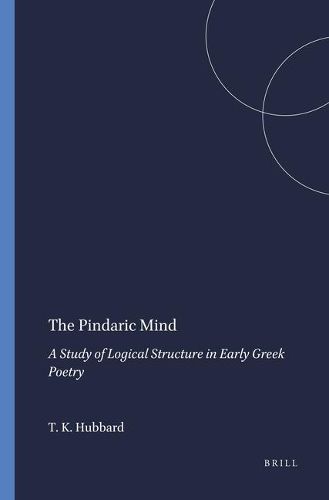Readings Newsletter
Become a Readings Member to make your shopping experience even easier.
Sign in or sign up for free!
You’re not far away from qualifying for FREE standard shipping within Australia
You’ve qualified for FREE standard shipping within Australia
The cart is loading…






In contrast with previous methodologies which seek “key ideas” or functional “programs, ” this book argues that the unique complexity of Pindar’s choral lyric can be better understood by analysis of each text’s logical configuration as a network of interacting polarities and analogies.
Against the backdrop of pre-Socratic philosophy and later rhetorical radition, the book systematically examines the primary polar relations which are prominent in Pindar’s work, illustrating their development and transformation through the course of individual odes. The author concludes that Pindar expands traditional ethical dichotomies into dynamic tensions which play on the semantic fluidity of Greek poetic language in its formative period.
This work attempts to apply “structuralist” hermeneutics in an appropriate way to the elucidation of an often difficult and obscure archaic poet. Accordingly, it should be of interest not only to the Pindaric specialist, but also to students of literary theory and the history of ideas in antiquity.
$9.00 standard shipping within Australia
FREE standard shipping within Australia for orders over $100.00
Express & International shipping calculated at checkout
In contrast with previous methodologies which seek “key ideas” or functional “programs, ” this book argues that the unique complexity of Pindar’s choral lyric can be better understood by analysis of each text’s logical configuration as a network of interacting polarities and analogies.
Against the backdrop of pre-Socratic philosophy and later rhetorical radition, the book systematically examines the primary polar relations which are prominent in Pindar’s work, illustrating their development and transformation through the course of individual odes. The author concludes that Pindar expands traditional ethical dichotomies into dynamic tensions which play on the semantic fluidity of Greek poetic language in its formative period.
This work attempts to apply “structuralist” hermeneutics in an appropriate way to the elucidation of an often difficult and obscure archaic poet. Accordingly, it should be of interest not only to the Pindaric specialist, but also to students of literary theory and the history of ideas in antiquity.